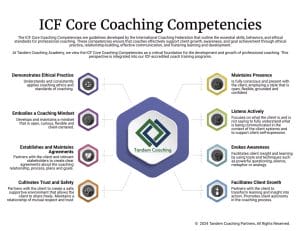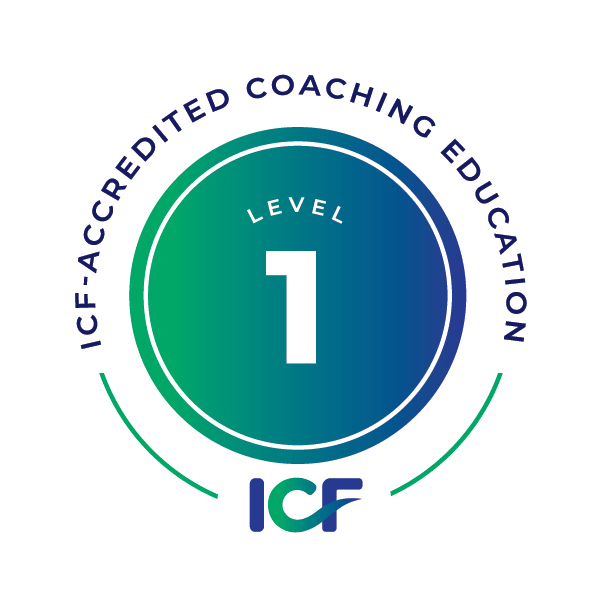Becoming a certified life coach is a journey that can transform not only your life but also the lives of those you aim to help. This article delves into the best life coach certification programs of 2024, offering an in-depth look into how you can become a certified professional life coach. With a myriad of options available, choosing the right certification training program is crucial for your success in the coaching field. Whether you’re looking to enrich your coaching skills, launch a coaching business, or transition into a fulfilling life coaching career, this guide provides the essential information you need. Read on to discover how these programs can equip you with the necessary tools and credentials to make a significant impact in the coaching world.
What is Life Coach Certification?
Life coach certification is a formal process that acknowledges an individual’s competency, ethical understanding, and proficiency in coaching techniques, enabling them to guide clients towards achieving their personal and professional objectives. This certification is not just a title; it’s a testament to a coach’s commitment to excellence, continuous improvement, and adherence to a set of standards and ethical guidelines established by globally recognized bodies like the International Coach Federation (ICF).

The essence of becoming a certified life coach lies in the journey of transformation — not only for the coach but also for the clients they will serve. It involves rigorous training, extensive practice, and a deep understanding of human behavior, motivation, and the dynamics of change. Certification programs, particularly those accredited by the ICF, such as the Tandem Coaching Academy’s ICF ACC training program, offer a structured pathway to acquiring these skills and knowledge. These programs ensure that aspiring coaches are well-versed in core competencies like active listening, powerful questioning, and creating an environment conducive to growth and self-discovery.
Certification is more than an educational endeavor; it’s a pledge to uphold the integrity and professionalism of the coaching profession. By choosing an accredited program, aspiring coaches signal their dedication to high standards. The Tandem Coaching Academy’s program, for example, not only aligns with ICF’s rigorous standards but also provides a comprehensive curriculum that covers the ethical guidelines, coaching techniques, and practical experience needed to excel as a life coach. Through a combination of theoretical learning and practical application, participants are prepared to navigate the complexities of human change and development effectively.
Moreover, life coach certification serves as a foundation upon which coaches build their practice. It equips them with the tools to facilitate meaningful conversations, inspire action, and contribute to the transformative journeys of their clients. Certification also opens doors to a community of professionals committed to personal and professional growth, offering opportunities for networking, mentorship, and continuous learning.
In addition to formal training and knowledge acquisition, certification programs emphasize the importance of developing a coaching mindset — one that is curious, non-judgmental, and focused on empowering clients to uncover their own answers. This mindset is critical for fostering a coaching relationship based on trust and mutual respect, where clients feel supported in exploring their potential and pursuing their goals.
The Tandem Coaching Academy’s ICF ACC training program exemplifies the comprehensive approach required to achieve certification. By integrating ICF’s core competencies with practical coaching experience, it offers a holistic path to becoming a certified life coach. While the program indeed prepares participants for certification, its true value lies in the transformation it ignites within them — transforming not only into certified coaches but into catalysts for change, equipped to make a profound impact in the lives of others.

Continue Learning with our ICF ACC Level 1 Coach Training Program
ICF core competencies form the foundation of powerful coaching.
Curious about building this strong foundation and embarking on the path to professional coaching?
Our ICF ACC Level 1 coach training program gives you the skills and credentials to excel.
Why Do You Need a Certification and a Coach Training Program to Become a Life Coach?

In the burgeoning field of life coaching, where the landscape is as diverse as the individuals it aims to serve, certification emerges as a critical step in distinguishing oneself as a credible and competent professional. The need for certification in becoming a life coach cannot be overstated; it represents a commitment to professional development, adherence to ethical standards, and a deep understanding of coaching methodologies that can profoundly impact clients’ lives. Among the variety of certification programs available, Tandem Coaching Academy stands out for its comprehensive approach to training and certification, tailored to aspiring life coaches seeking to make a significant mark in their professional life.
The Tandem Coaching Academy offers an ICF-accredited coach training program that encapsulates the essence of becoming a certified life coach. This program is designed not just to impart knowledge but to transform participants into adept coach practitioners capable of facilitating change and fostering growth in others. With a focus on coaching techniques, ethical practice, and the core competencies as defined by the ICF, Tandem’s program is a beacon for those aiming to excel in the coaching field. The academy’s commitment to excellence is evident in its rigorous curriculum, experienced faculty, and the supportive community it fosters, making it one of the best coaching programs of 2024 for those looking to embark on a coaching journey.
Beyond the merits of any single institution, the process of earning your certification is an invaluable part of your development as a coach. It’s a journey that challenges you to refine your coaching techniques, deepen your understanding of human behavior, and cultivate a coaching mindset. Certification is not merely an academic endeavor; it’s a transformative experience that prepares you for the realities of coaching diverse clients. From wellness coaching to relationship coaching, certification equips you with the tools to support clients across various areas of life, helping them to achieve their ideal version of their life.
Certification also serves as a bridge between the theoretical foundations of coaching and its practical application. Programs like those offered by Tandem Coaching Academy provide hands-on coaching practice, ensuring that by the time you earn your certification, you’re not just knowledgeable but also skilled in applying what you’ve learned. This blend of theory and practice is essential for building a successful coaching practice that can truly transform lives.
In an unregulated industry, certification from an ICF-accredited program sets a standard for quality and professionalism. It reassures clients of your competence and dedication to continuous improvement, making it an essential milestone for anyone serious about launching their life coaching career. Whether you aim to specialize in a specific niche like health coach or executive coaching, or you see yourself as a generalist helping clients navigate various challenges, certification provides the foundation upon which you can build a rewarding and impactful career.
In essence, the certification process is about more than just acquiring a title; it’s about becoming the best version of yourself as a coach. It’s about adopting an approach to life that is centered around growth, learning, and the empowerment of others. With programs available that cater to a wide range of interests and specializations, including Tandem’s ICF-accredited coach training, aspiring life coaches have an unprecedented opportunity to embark on a career that is not only professionally fulfilling but also personally transformative.
How to Choose the Best Life Coach Certification Program?
Selecting the best life coach certification program is a pivotal decision in an aspiring coach’s career, crucial for gaining the skills, credibility, and network needed to thrive. Amidst the myriad of coaching programs available, it’s essential to identify one that not only aligns with your career aspirations but also adheres to the highest standards of the coaching profession. The Tandem Coaching Academy offers an ICF-accredited coach training course, recognized for its comprehensive curriculum that covers all facets of coaching from foundational skills to advanced techniques and business development. Its blend of online life coach training and live, interactive sessions ensures accessibility and engagement, making it a prime choice for those serious about making a lasting impact in the coaching field.
When choosing a certification course, consider programs that emphasize real-world application, such as those offering specialist certification tracks or focusing on niches like relationship coach training or wellness coaching. Programs accredited by the ICF, like Tandem’s, guarantee a curriculum that meets global standards for professional excellence in coaching. They delve into coaching concepts, ICF core competencies, and ethical guidelines, preparing you to become a certified life coach equipped to handle the complexities of coaching diverse clients.
The journey toward becoming a certified life coach involves more than just learning; it’s about transforming your life and the lives of those you will coach. Look for programs that facilitate this transformation through a mix of theoretical knowledge, practical experience, and personal development. Online training options have made it easier than ever to access quality education, allowing you to balance your certification journey with other life commitments.
Life coaching involves relationship building at its core, a concept that should be woven into the fabric of the certification program you choose. Engaging with a community of like-minded individuals, such as the network provided by Tandem Coaching Academy, can enhance your learning experience and offer valuable connections that extend beyond the classroom.
Certification programs may vary widely in their approach, focus, and outcomes. As such, seeking life coach training from a certified life coach institute accredited by the international coaching community, such as the ICF, ensures you’re on the right path. These programs often include coaching practice with feedback, which is essential for honing your coaching style and techniques.
Ultimately, earning a certification from a reputable program like Tandem Coaching Academy’s coach training course is one of the best ways to launch your life coaching career. It signifies a commitment to professional excellence, ethical practice, and continuous learning—qualities that define the most successful coaches in the industry. As the coaching field evolves, being equipped with a solid foundation, a global network, and a recognized certification will set you apart, enabling you to make a meaningful difference in the lives of your clients and society at large.

Discover ICF PCC and ICF ACTC Team Coaching Competencies and Mastery
Are you eager to magnify the impact of your coaching practice?
Our ICF Team Competencies program offers a seamless transition for those who have mastered the core competencies, allowing you to delve deeper into the complexities and rewards of team coaching.
Explore this opportunity today.
The Process of Becoming a Certified Life Coach

Embarking on the process of becoming a certified life coach is a transformative journey that requires dedication, self-reflection, and a commitment to professional excellence. It’s a path that leads not only to personal growth but also to the opportunity to make a significant impact on others’ lives. Within this journey, selecting a program that aligns with your values and professional goals is crucial. Tandem Coaching Academy’s ICF-accredited life coach training program stands out for its comprehensive approach to developing skilled, ethical, and successful coaches. By integrating ICF core competencies with practical coaching experience, Tandem prepares its participants for the multifaceted role of a life coach, ensuring they are ready to meet the challenges and rewards of the coaching profession.
The process of becoming certified involves several key steps, beginning with selecting an ICF-accredited program that ensures adherence to the highest standards of the coaching industry. Accreditation by the ICF is a hallmark of quality, signifying that the program meets rigorous educational and ethical requirements. Tandem Coaching Academy’s focus on ICF accreditation underscores its commitment to providing a training program that is both comprehensive and globally recognized.
After choosing a suitable program, the next step is to immerse yourself in the learning and training process. This involves engaging with a wide range of topics, from the foundational principles of coaching to the nuances of building a coaching practice. Life coaches can make a profound difference in various areas of life, necessitating a broad understanding of human behavior, motivation, and change mechanisms. Programs like Tandem’s offer an in-depth exploration of these topics, alongside practical coaching exercises that allow you to apply what you’ve learned in real-world scenarios.
Certification also requires accumulating a specified number of coaching hours, providing services under the guidance of experienced mentors. This practical experience is invaluable, offering insights into the dynamics of the coach-client relationship and the practical application of coaching techniques. It’s an opportunity to refine your coaching style, receive feedback, and gain the confidence needed to navigate the coaching profession effectively.
The journey towards certification concludes with a comprehensive evaluation, including both written and practical assessments designed to test your understanding and application of coaching principles. Successfully passing these assessments earns you the designation of a certified life coach, a milestone that marks your readiness to begin or enhance your professional coaching career.
Becoming a certified life coach through an ICF-accredited program like Tandem’s is more than just an educational achievement; it’s a commitment to upholding the standards of the coaching profession and making a positive impact on the world. Despite coaching being an unregulated industry, certification sets you apart, demonstrating your dedication to your craft and your clients. It opens the door to joining a global community of professionals committed to fostering change and development, including specialized networks like the Association of Professional Recovery Coaches.
Moreover, the financial aspect of a coaching career is a consideration for many aspiring coaches. With certification, life coaches can command higher fees, reflecting their accredited training and the value they provide to their clients. The average fee for life coaches varies widely, influenced by factors such as specialization, experience, and geographical location, but certification undoubtedly enhances a coach’s earning potential.
The Role of the International Coach Federation (ICF) in Certification
The International Coach Federation (ICF) plays a pivotal role in the life coaching industry, setting the global standard for certification programs, ethical guidelines, and professional excellence. As the coaching field continues to grow and evolve, the ICF’s accreditation serves as a beacon of quality and reliability for both coaches and clients alike. Within this framework, Tandem Coaching Academy’s ICF-accredited life coach training program stands as a testament to the highest standards of coaching education, ensuring that its graduates are well-prepared to embark on their coaching journeys with confidence and competence.
The ICF accreditation process is rigorous, requiring programs like Tandem’s to adhere to stringent educational and ethical standards. This ensures that certified coaches possess a deep understanding of coaching methodologies, ethics, and the core competencies necessary for effective practice. ICF-accredited programs are designed to equip aspiring coaches with the skills to foster meaningful change in their clients’ lives, distinguishing them in an industry where professionalism and results are paramount.
In addition to setting educational standards, the ICF also contributes to the professional development of coaches through its global coaching study, certification pathways, and continuous learning opportunities. These initiatives provide valuable insights into the coaching profession, helping coaches stay abreast of the latest trends, techniques, and best practices. For those interested in becoming a life coach, engaging with ICF-accredited programs and resources is an invaluable step toward achieving professional recognition and success.
The distinction between a life coach and a therapist is an important consideration within the ICF framework. While both professions aim to support individuals in achieving greater fulfillment and well-being, their methodologies and areas of focus differ significantly. The ICF’s standards ensure that life coaches are trained to facilitate personal and professional growth rather than addressing mental health issues, which are the domain of licensed therapists. This clear delineation helps maintain the integrity of the coaching profession and guides coaches in their practice.
Life coaches certified through ICF-accredited programs, such as the one offered by Tandem Coaching Academy, are recognized for their commitment to excellence and adherence to the highest professional standards. This recognition is not only a mark of quality but also enhances the coach’s credibility and marketability, potentially leading to greater earning opportunities. The average fee for life coaches can vary, but those with ICF credentials often command higher rates due to their proven expertise and the trust they inspire in clients.
Furthermore, the ICF supports specialized coaching practices, such as those focused on recovery or prevention, through its endorsement of programs that offer specialized training. This fosters a diverse coaching ecosystem where professionals can find their niche and contribute to specific areas of need, enhancing the overall impact of coaching on society.

Enjoyed our insights on professional coaching? We’re just scratching the surface. Dive deeper into the world of transformative coaching with our exclusive offer. Sign up now to receive our FREE brochure: “Our Twelve Favorite Coaching Questions”—a curated collection of powerful questions designed to unlock potential, foster growth, and inspire action.
"*" indicates required fields
In a field as dynamic and unregulated as coaching, ICF accreditation provides a much-needed framework for quality control and professional integrity. Programs like Tandem Coaching Academy’s not only prepare individuals to become certified life coaches but also to join a global community of professionals dedicated to making a positive difference in the world. Through its rigorous standards, continuous learning opportunities, and commitment to excellence, the ICF ensures that the coaching profession remains a respected and valuable resource for individuals seeking to transform their lives and careers.
Specialization in Life Coaching: What to Look for?
The field of life coaching is rich and varied, offering numerous pathways for coaches to specialize and excel in areas aligned with their interests and the needs of their clientele. Specializing in a specific niche allows coaches to tailor their practice to serve particular groups more effectively, whether it’s in health and wellness, career development, relationships, or personal growth. The Tandem Coaching Academy’s ICF-accredited life coach program recognizes the importance of specialization, providing a robust foundation in core coaching competencies while also encouraging coaches to explore and develop their unique coaching niches.

Choosing to specialize requires a deep understanding of the specific challenges and opportunities within that niche, as well as the ability to apply coaching techniques in a way that resonates with the target clientele. Specializations can range from wellness coaching, aimed at improving physical and mental health, to executive coaching, focused on leadership and professional development. The Institute for Professional Excellence in Coaching (iPEC), for example, offers iPEC’s coach training that prepares coaches for the diverse demands of these specialized fields, underscoring the value of a focused approach.
Becoming certified as a life coach with a specialization involves not only mastering the ICF core competencies but also gaining specific knowledge and skills relevant to your chosen area. This might include understanding the unique dynamics of relationship coaching or acquiring the tools to support clients in achieving specific career goals. Specialized training programs, such as those offered by the Institute for Life Coach Training, equip coaches with the expertise needed to make a meaningful impact in their chosen niche.
The global coaching study conducted by the ICF provides insights into the growing demand for specialized coaching services, highlighting the increasing recognition of coaching’s value across various aspects of life and business. This demand underscores the importance of choosing a certification program that offers both a solid foundation in general coaching principles and the flexibility to pursue specialized training.
For coaches interested in areas like health and wellness or prevention, certifications like the Certified Prevention Professional can add another layer of credibility and expertise to their practice. These certifications acknowledge the coach’s specialized knowledge and commitment to their niche, enhancing their ability to support clients effectively.
Navigating the many programs available for life coach certification and specialization can be daunting. However, selecting an ICF-accredited program, known for its commitment to excellence and professional standards, provides a reliable starting point. Through comprehensive training and specialized pathways, programs like Tandem Coaching Academy’s ensure that coaches are well-prepared to meet the diverse needs of their clients, whether they’re helping individuals navigate personal challenges or supporting professionals in achieving their career objectives.
Building Your Coaching Business as a Certified Life Coach
Once you’ve navigated the path to becoming a certified life coach, with a specialty that fuels your passion and aligns with your expertise, the next pivotal step is to build a coaching business that not only survives but thrives. Establishing a successful coaching practice requires more than just coaching skills; it demands entrepreneurial acumen, strategic marketing, and a deep commitment to ongoing professional development. Tandem Coaching Academy’s ICF-accredited life coaching program not only equips you with the foundational skills necessary for effective coaching but also provides insights into the business aspects of coaching, preparing you to launch and sustain a successful coaching practice.
Building your coaching business starts with understanding the marketplace and identifying your ideal client. This involves clarifying who you can serve best with your unique blend of skills and specialization, and tailoring your marketing and communication strategies to engage this audience. The business of coaching is as much about connecting with people who need your services as it is about delivering transformative coaching experiences.
A critical component of building a successful coaching business is leveraging your certification, particularly when it’s from an ICF-accredited program. Such accreditation not only enhances your credibility but also assures potential clients of your commitment to high ethical and professional standards. Highlighting your ICF accreditation in your marketing materials and client conversations can significantly impact your business’s growth and sustainability.
Furthermore, engaging with global and local coaching communities, as suggested by findings from the ICF Global Coaching Study, can provide invaluable networking opportunities, insights into industry trends, and potential collaborations. These communities often serve as ecosystems that support coaches through knowledge sharing, referrals, and collective advocacy efforts, contributing to the overall growth of your coaching practice.
Adapting your business model to include life’s various aspects, such as offering virtual coaching services or creating specialized programs that address specific client needs, can also enhance your practice’s appeal. The flexibility and adaptability of your business model are crucial in today’s dynamic market, where clients seek personalized and convenient coaching solutions.
Lastly, committing to continuous learning and professional development is essential for keeping your coaching practice relevant and impactful. Participating in advanced training programs, attending coaching conferences, and staying updated with the latest research and methodologies in the field can provide you with fresh insights and strategies to help your clients achieve their goals more effectively.
In building a coaching business, the journey from obtaining your certification, such as through Tandem Coaching Academy’s program, to establishing a thriving practice is marked by continuous growth, learning, and adaptation. By leveraging your ICF accreditation, connecting with the coaching community, and staying committed to excellence and innovation in your practice, you can create a coaching business that not only fulfills your professional aspirations but also makes a lasting difference in the lives of those you serve.
Life Coaching vs. Therapy: Understanding the Difference

Distinguishing between life coaching and therapy is crucial for anyone entering the coaching field, especially for those aspiring to become a certified professional coach. This distinction not only helps in defining the scope of practice but also clarifies the expectations clients might have from engaging with a life coach. For individuals pursuing a career in life coaching through an ICF-accredited program like Tandem Coaching Academy, understanding these differences is part of the foundational knowledge required to build a successful life coaching practice.
Life coaching, particularly when pursued through an ICF-accredited life coaching program, focuses on helping clients achieve specific goals, overcome obstacles, and make changes or shifts in their lives. The process is action-oriented and future-focused, with the coach serving as a facilitator of change, encouraging and supporting the client in their pursuit of a better quality of life. This approach is distinct from therapy, which often deals with healing emotional pain, dysfunction, and conflict within an individual or in relationships. Therapists work from a healthcare perspective, diagnosing and treating mental health issues, while life coaches, including those certified through programs from coach training institutions like Tandem, work on goal setting, personal growth, and lifestyle improvement.
Becoming a certified professional coach through an ICF-accredited program equips individuals with the skills and knowledge to create effective coaching strategies that promote client growth and development. This certification ensures that coaches understand their role in guiding clients toward achieving their personal and professional goals, without stepping into the realm of mental health care. The emphasis is on building a coaching relationship that inspires clients to maximize their personal and professional potential.
Incorporating life coaching into one’s practice involves a clear commitment to focusing on the future, setting actionable goals, and working alongside the client as they embark on a journey of self-improvement and discovery. This contrasts with therapy’s often retrospective analysis to resolve past issues. The get certified process through an ICF-accredited program ensures that coaches are well-prepared to navigate this distinction, offering clarity and direction in their coaching engagements.
The role of a life coach is to empower clients to make, meet, and exceed goals in both their personal and professional lives, distinguishing it from the therapeutic focus on healing. Programs from coach training providers like Tandem Coaching Academy emphasize this distinction, preparing participants to foster environments where clients can explore their potential and enact significant changes in their lives, without delving into the therapeutic territories of diagnosing or treating psychological issues.
Key Takeaways: The Path to Becoming a Certified Life Coach with Tandem Coaching Academy
The journey to becoming a certified life coach is filled with learning, growth, and the opportunity to make a profound difference in the lives of others. Here are the key takeaways from our exploration of this rewarding career path, emphasizing why the Tandem Coaching Academy’s ICF ACC program stands out as the premier choice for aspiring life coaches.
- Understanding Life Coach Certification: Certification is crucial for establishing credibility and expertise in the coaching field. Tandem Coaching Academy offers an ICF-accredited program that meets the highest standards for coaching education, ensuring graduates are well-prepared for their coaching careers.
- The Importance of Certification: Becoming certified through an ICF-accredited program like Tandem’s demonstrates a commitment to professional excellence and ethical practice, setting you apart in the coaching industry.
- Choosing the Best Certification Program: Tandem’s ICF-accredited program offers a comprehensive curriculum, experienced faculty, and a supportive community, making it an ideal choice for those seeking to become certified life coaches.
- The Process of Becoming Certified: Tandem Coaching Academy guides aspiring coaches through the entire certification process, from foundational training to practical coaching experience, ensuring a deep understanding of coaching principles and methodologies.
- The Role of ICF in Certification: The ICF’s accreditation of Tandem’s program signifies its adherence to the highest educational and ethical standards, providing a solid foundation for a successful coaching practice.
- Specializing in Life Coaching: Tandem encourages specialization, allowing coaches to tailor their practice to areas they are passionate about, enhancing their effectiveness and marketability.
- Building a Successful Coaching Business: With its focus on both coaching skills and business acumen, Tandem’s program prepares graduates to launch and grow their coaching practices in a competitive market.
- Life Coaching vs. Therapy: Tandem’s program clearly delineates the differences between life coaching and therapy, ensuring coaches understand their scope of practice and can effectively support their clients’ goals.
Why Tandem Coaching Academy’s ICF Accredited ACC Program is the Best Option:
- ICF Accreditation: Tandem’s program meets the rigorous standards of the International Coach Federation, the leading global organization for coaching professionals.
- Comprehensive Curriculum: Covering all essential aspects of coaching, from core competencies to business development, Tandem prepares coaches for every aspect of their future careers.
- Practical Experience: Tandem emphasizes hands-on coaching practice, allowing students to apply their learning in real-world settings under the guidance of experienced coaches.
- Flexibility and Support: Offering flexible learning options and a supportive community, Tandem ensures that every student can successfully navigate their certification journey.
- Specialization Opportunities: Recognizing the value of niche coaching, Tandem offers pathways for coaches to specialize, increasing their appeal to potential clients.
Choosing Tandem Coaching Academy for your life coach certification means opting for a program that not only prepares you for certification but also sets you up for a successful, fulfilling career in life coaching. With its comprehensive, ICF-accredited curriculum, experienced faculty, and focus on practical experience, Tandem stands out as a leading choice for those committed to making a difference in the lives of others through coaching.

Unlock Your Coaching Potential with Tandem!
Dive into the essence of effective coaching with our exclusive brochure, meticulously crafted to help you master the ICF Core Coaching Competencies.
"*" indicates required fields
About the Author
Cherie Silas, MCC
She has over 20 years of experience as a corporate leader and uses that background to partner with business executives and their leadership teams to identify and solve their most challenging people, process, and business problems in measurable ways.















